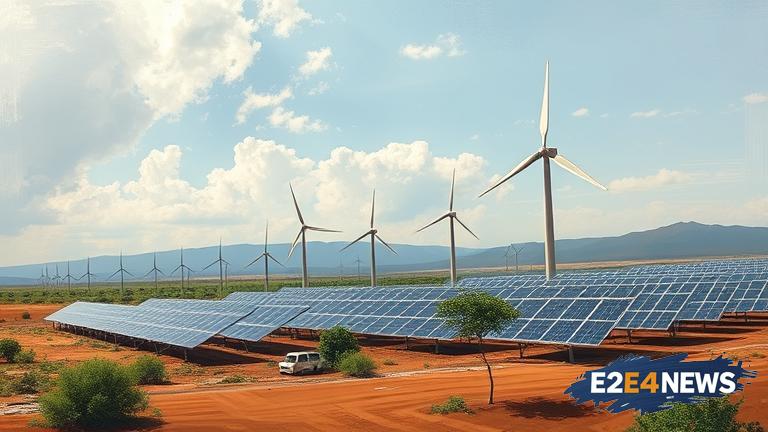The African continent is witnessing a significant shift towards renewable energy, driven by the need to address the pressing issues of energy access, climate change, and sustainable development. With many countries still struggling to provide electricity to their populations, renewable energy has emerged as a viable solution. Solar and wind power are becoming increasingly popular, with countries like South Africa, Morocco, and Egypt leading the way. The cost of renewable energy technologies has decreased dramatically over the years, making them more competitive with fossil fuels. This has led to a surge in investment in the sector, with many international companies and organizations committing to support Africa’s renewable energy ambitions. The African Union’s Agenda 2063 has set a target of ensuring access to clean and affordable energy for all Africans by 2030. To achieve this goal, the continent will need to increase its renewable energy capacity significantly. Several countries have already made significant progress in this regard, with Kenya, for example, generating over 70% of its electricity from renewable sources. Rwanda has also set an ambitious target of becoming a carbon-neutral economy by 2050. The use of renewable energy is not only good for the environment, but it also has numerous economic benefits, including job creation and stimulation of local economies. In addition, renewable energy can help to reduce poverty and improve healthcare outcomes by providing energy access to remote and underserved communities. However, despite the many benefits of renewable energy, there are still several challenges that need to be addressed, including the lack of infrastructure and financing. Many African countries lack the necessary grid infrastructure to support the integration of renewable energy into the energy mix. Furthermore, the cost of financing renewable energy projects can be prohibitively expensive for many countries. To overcome these challenges, international cooperation and investment will be crucial. The African Development Bank has launched several initiatives to support the development of renewable energy in Africa, including the creation of a $500 million fund to support renewable energy projects. The bank has also launched a program to provide technical assistance and capacity building to help countries develop their renewable energy sectors. Other international organizations, such as the International Renewable Energy Agency (IRENA), are also providing support to African countries to help them achieve their renewable energy goals. In addition to these efforts, many private companies are also investing in Africa’s renewable energy sector. For example, the Norwegian company, Scatec, has invested heavily in solar power projects in countries such as South Africa and Rwanda. The company has also partnered with local organizations to provide training and capacity building to help develop the local renewable energy industry. As the demand for energy continues to grow in Africa, it is likely that renewable energy will play an increasingly important role in meeting this demand. With the right policies and investments in place, Africa can become a leader in the global renewable energy market, creating jobs, stimulating economic growth, and reducing its carbon footprint. The future of renewable energy in Africa looks bright, with many opportunities for growth and development. However, it will require continued investment, innovation, and cooperation to overcome the challenges that lie ahead. The benefits of renewable energy are clear, and it is up to governments, companies, and individuals to work together to ensure that Africa’s renewable energy revolution continues to gain momentum.
